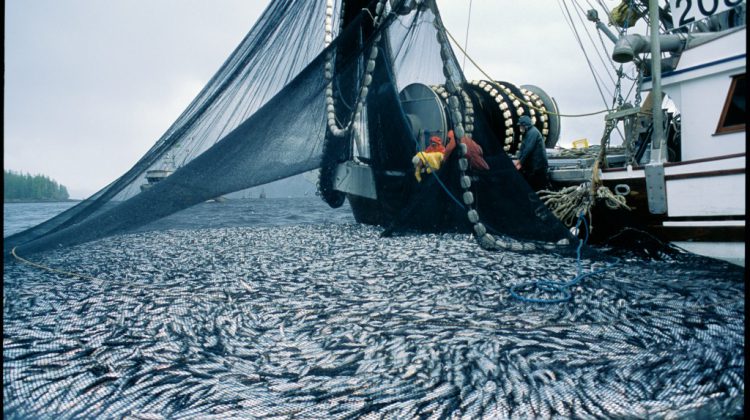NORTHERN VANCOUVER ISLAND, B.C. – With an eye to the future, the Islands Trust council is drafting a letter to Federal Minister of Fisheries and Ocean Jonathan Wilkinson asking for a moratorium on the herring roe fishery in the Salish Sea.
Islands Trust wants a moratorium imposed until an ecosystem-based management plan is in place that considers the current and future effects of climate change, and the potential Chinook salmon and southern resident killer whales.
The letter will be sent in the coming months, as the Bowen Island Municipality and First Nations are being invited to participate in the process.
Islands Trust chair Peter Luckham spoke about the rationale behind sending the letter.
“The herring is an important food fish for other species,” Luckham said. “It goes all the way up the food chain to the southern resident killer whales and we want to be sure the herring species and the other species in the Salish Sea are being suitably protected to ensure their ongoing survival.”
Laura Busheikin, Denman Island local trustee with Islands Trust, was a driving force behind the discussion on the herring roe fishery and the decision to send the letter.
“That comes from being on Denman Island for a number of years and seeing the herring fishery go on, and hearing about it, and at the same time what really motivated me wasn’t about any local concerns – it was ecosystem concerns,” Busheikin said.
Busheikin said she is focused on what impact removing that amount of herring from local waters would have on the food chain off the coast of Vancouver Island.
“When you remove herring from the ecosystem, you’re removing the food of many other species but particularly salmon and that effects orcas because it goes up the food chain,” Busheikin said. “We don’t know what the effect is now. People talk about historic highs, but we’re not in history, we’re in now and we have climate change on our hands and we have a dwindling orca population possibly facing extinction.”
With that in mind, Busheikin said more knowledge is needed before moving ahead with future fisheries.
She realizes that the fishery is providing jobs but what she would like to see is a program to help those who make a living from the fisheries make a transition.
“This fishery takes place four or five days a year,” she said. “There’s not thousands of people for whom it’s their annual income. Of course, no one wants to take food out of the mouths of people but I’m looking at the bigger picture. We’ve seen fish stocks entirely depleted in many parts of the world and then you have a total crash of economy and you have villages that have become ghost towns for decades and nobody wants that.”
Busheikin hopes the province steps back in order to ensure that the fishery is sustainable before moving forward “at a sustainable rate.”
“So it’s a long picture versus a short picture,” she added.
Meanwhile, the Conservancy Hornby Island’s online petition on change.org had more than 72,300 signatures as of Tuesday morning.
The petition says that the “DFO has approved the catch of roughly 200 million spawning herring in the Georgia Strait – the last viable herring roe fishery on the coast – without considering what impact this may have on all the other sea creatures who rely on this one species of forage fish.”
The Hornby Island group says that Pacific herring is the basis for the food web that supports the salmon, killer whales and most of the other mammals, seabirds and other creatures, adding that 80 percent of the Chinook salmons’ diet is herring, and over 80 percent of the endangered southern resident killer whales’ diet is Chinook.
Busheikin said you can look at the sustainability of herring and their biomass and say it’s doing well “but that compartmentalize shouldn’t be the norm, anymore. It’s limited and it’s not just herring. It’s everything.”
Last week, DFO pelagics coordinator Brenda Spence maintained that the fishery is sustainable: “The harvest rate for herring for each of the five stock areas is at a level relative to the long-term sustainability of that stock. So for the Strait of Georgia, it’s a 20 percent maximum harvest rate of the spawning biomass. And we have been harvesting at or below that rate for a number of years with substantial commercial fisheries. Our stimulation analysis does show that this is sustainable over time.”
The MyComoxValleyNow.com newsroom has reached out to Spence for an update.




